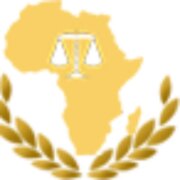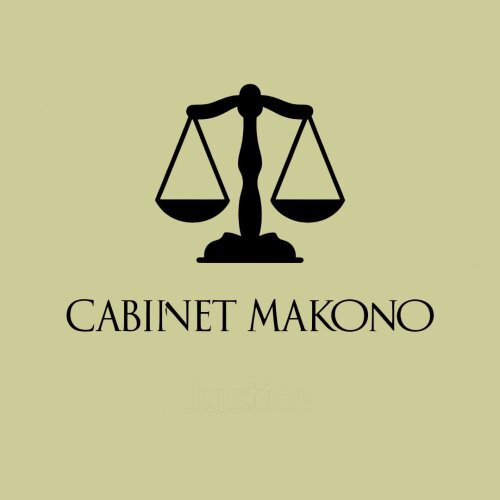Best Oil, Gas & Energy Lawyers in Kinshasa
Share your needs with us, get contacted by law firms.
Free. Takes 2 min.
List of the best lawyers in Kinshasa, DR Congo
About Oil, Gas & Energy Law in Kinshasa, DR Congo
Oil, Gas, and Energy sector significantly contributes to the economy of the Democratic Republic of Congo (DRC), especially in its capital city, Kinshasa. Governing this sector is a wide array of laws and regulations intended to manage resources, protect the environment, safeguard stakeholders' rights, and ensure maximum benefits for the nation. The key legislation in this sector from a national standpoint include National Hydrocarbons Law 15/012, Electricity Law 14/011, and Mining Code revision introduced in 2018. The government has created a conducive environment for both domestic and international investors known for its rich natural resource deposits.
Why You May Need a Lawyer
If you are engaging with the Oil, Gas & Energy sector in Kinshasa whether as an investor, employee, landowner, or stakeholder, you might require a lawyer experienced in this particular field. Complex contract negotiations, land valuation assessments, compensation negotiations, licensing applications, understanding regulatory frameworks, ensuring compliance with prevailing laws, and environmental impact assessments are some situations that warrant legal help. Additionally, in case of conflicts that may arise, having specialized legal assistance increases the likelihood of a resolution that falls in your favor.
Local Laws Overview
The Oil, Gas & Energy sector in Kinshasa is primarily influenced by National Hydrocarbons Law 15/012, Electricity Law 14/011, and the updated Mining Code. The Hydrocarbons Law 15/012 provides for exploration and production rights, while the Electricity Law 14/011 establishes the regulatory structure for electricity generation and distribution. DRC also imposes specific taxation on hydrocarbon and mining activities. Apart from these, there are laws concerning environmental protection, labor rights, and business conduct that companies in the sector need to comply with.
Frequently Asked Questions
1. Is foreign investment allowed in DR Congo's Oil, Gas & Energy sector?
Yes, both national and international investors are encouraged to invest in the Oil, Gas & Energy sector in DR Congo.
2. Are there specific environmental regulations related to the Oil, Gas & Energy sector?
Yes, companies are required to conduct an environmental impact assessment before launching a project and must follow specified environmental safety standards during operations.
3. Can a landowner negotiate compensation in case of exploration on their land?
Yes, landowners can negotiate compensation under the guidance of an experienced lawyer. Compensation provisions are included in the Hydrocarbons Law.
4. How is the Oil, Gas & Energy sector regulated in DR Congo?
The Ministry of Hydrocarbons and the Ministry of Mines are the key regulatory bodies overseeing oil, gas, and energy operations, respectively.
5. What taxes are applicable to companies in the Oil, Gas & Energy sector?
Specific taxation is imposed on hydrocarbon and mining activities as per the national law, which includes royalties, surface taxes, and customs duties among others.
6. Do energy-related contracts need to be in a certain language?
Contracts must be in French as per the DR Congo legal system. It is advisable to seek legal help in this case for accurate translations and understanding of contractual obligations.
7. Is there any restriction on exporting oil and gas production?
All exports are subject to regulation and may require specific permissions under national law.
8. What is the role of customary rights in land use for oil and gas projects?
The Hydrocarbons law recognizes customary rights to land. If a landowner negotiates with an exploration or production company, these rights will come into play.
9. Is there a national oil or gas company in DR Congo?
Yes, there is a national oil company called Cohydro.
10. Are offshore projects allowed in DR Congo?
Yes, offshore projects are permitted under the Hydrocarbons law.
Additional Resources
The Ministry of Hydrocarbons and the Ministry of Mines are key governmental bodies overseeing operations in the Oil, Gas & Energy sector. Additional resources may include professional legal counselors specialized in oil and gas laws, the National Agency of Investment Promotion for necessary assistance in investment, and NGOs or independent bodies focused on environmental and labor rights in this sector.
Next Steps
If you require legal assistance in Oil, Gas & Energy sector in Kinshasa, the first step would be to identify a lawyer or a legal firm that specializes in this field. It may also be beneficial to familiarize yourself with the existing laws and regulations in this sector. For potential investors, approaching the National Agency of Investment Promotion for guidelines and incentives can be beneficial. If your work is likely to impact the environment or local communities, liaising with environmental bodies or community representatives early in the process would be advisable.
Lawzana helps you find the best lawyers and law firms in Kinshasa through a curated and pre-screened list of qualified legal professionals. Our platform offers rankings and detailed profiles of attorneys and law firms, allowing you to compare based on practice areas, including Oil, Gas & Energy, experience, and client feedback.
Each profile includes a description of the firm's areas of practice, client reviews, team members and partners, year of establishment, spoken languages, office locations, contact information, social media presence, and any published articles or resources. Most firms on our platform speak English and are experienced in both local and international legal matters.
Get a quote from top-rated law firms in Kinshasa, DR Congo — quickly, securely, and without unnecessary hassle.
Disclaimer:
The information provided on this page is for general informational purposes only and does not constitute legal advice. While we strive to ensure the accuracy and relevance of the content, legal information may change over time, and interpretations of the law can vary. You should always consult with a qualified legal professional for advice specific to your situation.
We disclaim all liability for actions taken or not taken based on the content of this page. If you believe any information is incorrect or outdated, please contact us, and we will review and update it where appropriate.














